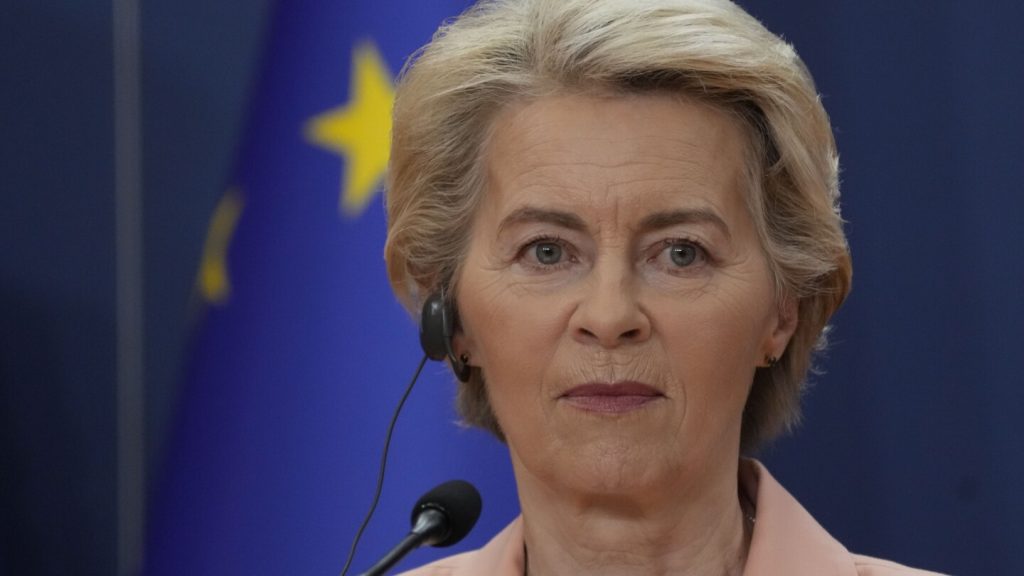European Commission President Ursula von der Leyen recently visited Kosovo as part of a tour of aspiring EU member states in the Western Balkans. She emphasized the EU’s commitment to countering Russia’s hybrid attacks against democracies in the region, stating that Brussels is working to debunk misinformation and propaganda. Von der Leyen also highlighted the importance of transparency and clear messaging in combating these attacks, particularly in countries like Kosovo and Serbia.
The relationship between Kosovo and Serbia remains tense, even 25 years after the end of the war in 1999 that resulted in Kosovo’s independence declaration in 2008. Despite the ongoing dialogue between the two countries to normalize ties, Kosovo-Serbia relations are still strained. Von der Leyen did not address the dialogue during her visit, instead focusing on the EU’s efforts to boost the region’s economy and support their path to EU membership.
Last year, EU officials presented a 6-billion-euro growth plan for the Western Balkan countries with the goal of doubling the region’s economy over the next decade. This aid is conditional on reforms that align the countries’ economies with EU rules. The six Western Balkan countries are at varying stages in their EU membership applications, but European leaders are now pushing for accelerated progress following Russia’s invasion of Ukraine in February 2022.
During her trip, Von der Leyen also visited Montenegro, a NATO member state seen as a frontrunner for EU membership. She praised Montenegro’s efforts on the EU path and encouraged unity in the country to achieve progress. Von der Leyen reassured the region that EU enlargement will remain a top priority, emphasizing the readiness of the EU to support the Western Balkan countries in their journey towards EU membership.
The European Commission approved the reform agendas of Albania, Kosovo, Montenegro, North Macedonia, and Serbia, allowing for payments under the growth plan upon completion of agreed reform steps. Von der Leyen expressed optimism for progress in the region, urging collaboration and unity among the countries to facilitate their EU membership aspirations. The visit concluded with a message of commitment from Von der Leyen to prioritize enlargement in the EU’s political agenda over the next five years.
Overall, Von der Leyen’s visit to the Western Balkans reaffirmed the EU’s support for the region’s economic development and path to EU membership. By addressing the challenges posed by Russia’s hybrid attacks and emphasizing the importance of reforms and unity, the EU aims to strengthen its relationship with the Western Balkan countries and accelerate their integration into the European Union. The visit highlighted the EU’s commitment to countering external threats, supporting economic growth, and advancing democracy in the region.


